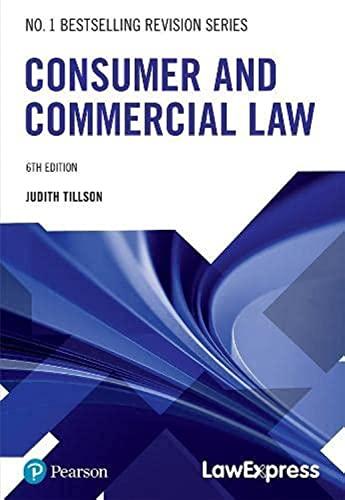Question
CASE SUMMARY Facts: Microsoft Libya hired a Libyan citizen, Mahmoud Kedkad, to work as a Marketing Lead in Tripoli. Kedkad signed a one-year employment agreement
CASE SUMMARY
Facts: Microsoft Libya hired a Libyan citizen, Mahmoud Kedkad, to work as a Marketing Lead in Tripoli. Kedkad signed a one-year employment agreement (First Contract) which provided that the contract was governed by Libyan law and any disputes had to be tried in Libya.
The next year, Kedkad signed another contract (Second Contract) stating that the contract was subject to the provisions of Libyan Law No. 1 and its amendments. This contract made no mention of where lawsuits would be tried.
During the term of the Second Contract, revolution erupted in Libya. Microsoft Libya evacuated all of its employees, including Kedkad, to the United States. The company then reassigned Kedkad to Dubai, but he told the company he could not go because of the Post-Traumatic Stress Disorder (PTSD) he had acquired from his exposure to horrible violence in Libya. He asked to be assigned to a job in the United States. Microsoft fired him.
Kedkad sued Microsoft in the United States alleging that it had violated his contract by firing him and also that it had refused to accommodate his PTSD disability as required by U.S. law. Microsoft filed a motion to dismiss on the grounds that the case should be heard in Libya, under Libyan law. It argued that such a requirement was implied in the Second Contract and, furthermore, Libyan Law No. 1 required it. However, because Libyan Law No. 1 had been repealed and replaced by Libyan Law No. 2, Microsoft argued that No. 2 applied and that this statute would also have required the case to be heard in Libya.
Issue: Does Kedkad's contract require that his lawsuit be tried in Libya?
Decision: No, he could bring his case in the United States.
Reasoning: Although the First Contract stated that any lawsuit must be tried in Libya, the Second Contract was completely silent on this issue. Microsoft asks the court to assume that the Second Contract had an implied provision requiring lawsuits to take place in Libya. Instead, the Court has to assume the provision was left out of the Second Contract on purpose.
Microsoft argues that the contract should have been governed by Libyan Law No. 2 which replaced No. 1 and would have required the lawsuit to take place in Libya. Such an indirect reference to a replacement for a repealed statute did not provide sufficient notice to Kedkad that his rights were being severely limited.
What is the Issue?
What is the rule of law the court uses to make its decision?
How does the court apply the rule to the facts and analyze the case must be understood in order to properly predict outcomes in future cases involving the same issue. What does the court consider to be a relevant fact given the rule of law?
What is the final outcome of the case?
Step by Step Solution
There are 3 Steps involved in it
Step: 1

Get Instant Access to Expert-Tailored Solutions
See step-by-step solutions with expert insights and AI powered tools for academic success
Step: 2

Step: 3

Ace Your Homework with AI
Get the answers you need in no time with our AI-driven, step-by-step assistance
Get Started


